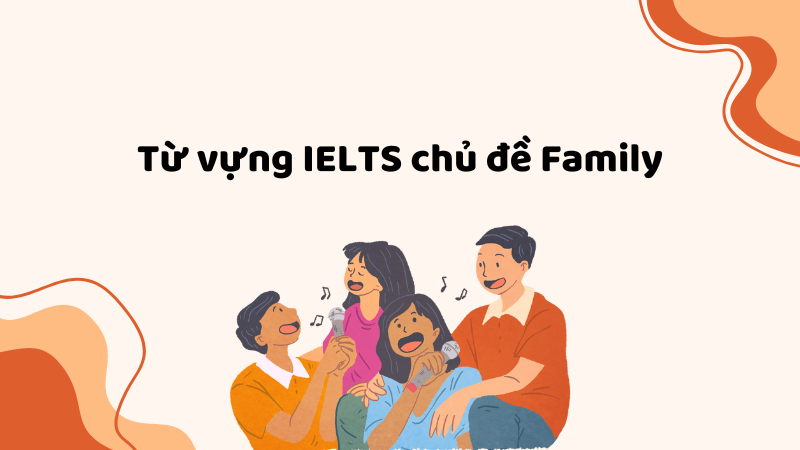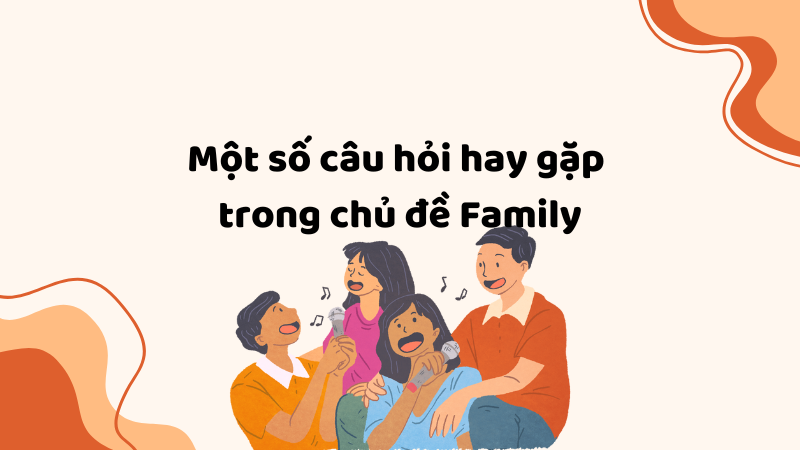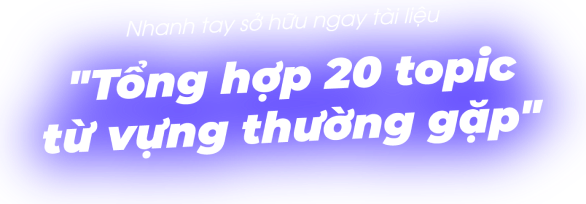Từ vựng IELTS chủ đề Family: Muốn nói chuyện về gia đình bằng tiếng Anh một cách tự tin? Hãy cùng Edmciro khám phá kho tàng từ vựng phong phú và đa dạng về chủ đề gia đình. Từ những từ vựng cơ bản đến những cụm từ phức tạp, chúng tôi sẽ giúp bạn nâng cao vốn từ vựng của mình.
Từ vựng IELTS chủ đề Family
Dưới đây là tổng hợp từ vựng chủ đề Family trong IELTS mà Edmciro đã tổng hợp được, hãy cùng theo dõi tại bảng dưới đây nhé!

| Số TT | Từ vựng | Phiên âm | Nghĩa | Ví dụ |
|---|---|---|---|---|
| 1 | Family | /ˈfæməli/ | Gia đình | My family consists of my parents, two brothers, and a sister. (Gia đình tôi gồm bố mẹ, hai anh trai và một em gái.) |
| 2 | Member | /ˈmembər/ | Thành viên | Each member of my family has a unique personality. (Mỗi thành viên trong gia đình tôi đều có một tính cách độc đáo.) |
| 3 | Parent | /ˈpeərənt/ | Bố mẹ | My parents are very supportive of my dreams. (Bố mẹ tôi rất ủng hộ ước mơ của tôi.) |
| 4 | Child | /tʃaɪld/ | Con cái | Children learn a lot from their parents. (Trẻ con học hỏi rất nhiều từ bố mẹ.) |
| 5 | Sibling | /ˈsɪblɪŋ/ | Anh chị em ruột | I have two siblings, an older brother and a younger sister. (Tôi có hai anh chị em, một anh trai lớn và một em gái nhỏ.) |
| 6 | Grandparent | /ˈɡrændpeərənt/ | Ông bà | My grandparents live in the countryside. (Ông bà tôi sống ở quê.) |
| 7 | Relative | /ˈrelətɪv/ | Họ hàng | We had a big family gathering with all our relatives. (Chúng tôi đã có một buổi họp mặt gia đình lớn với tất cả họ hàng.) |
| 8 | Nuclear family | /ˈnjuːkliər ˈfæməli/ | Gia đình hạt nhân | In many modern societies, the nuclear family is becoming more common. (Trong nhiều xã hội hiện đại, gia đình hạt nhân ngày càng phổ biến.) |
| 9 | Extended family | /ɪkˈstendɪd ˈfæməli/ | Gia đình mở rộng | We have a large extended family, including aunts, uncles, and cousins. (Chúng tôi có một gia đình lớn bao gồm cả cô dì chú bác và anh em họ.) |
| 10 | Close-knit | /ˌkləʊsˈnɪt/ | Gắn bó, khăng khít | My family is very close-knit and we support each other. (Gia đình tôi rất gắn bó và chúng tôi luôn ủng hộ nhau.) |
| 11 | Supportive | /səˈpɔːrtɪv/ | Ủng hộ | My parents are very supportive of my career choices. (Bố mẹ tôi rất ủng hộ sự lựa chọn nghề nghiệp của tôi.) |
| 12 | Caring | /ˈkeərɪŋ/ | Quan tâm | My family is very caring and always there for me. (Gia đình tôi rất quan tâm và luôn ở bên cạnh tôi.) |
| 13 | Loving | /ˈlʌvɪŋ/ | Yêu thương | We have a loving family. (Chúng tôi có một gia đình yêu thương.) |
| 14 | Respectful | /rɪˈspektfəl/ | Kính trọng | It’s important to be respectful to all members of the family. (Việc tôn trọng tất cả các thành viên trong gia đình là rất quan trọng.) |
| 15 | Responsible | /rɪˈspɒnsəbl/ | Có trách nhiệm | As the eldest child, I feel responsible for my younger siblings. (Là con cả, tôi cảm thấy có trách nhiệm với các em.) |
| 16 | Traditional | /trəˈdɪʃnəl/ | Truyền thống | My family has many traditional customs. (Gia đình tôi có nhiều phong tục truyền thống.) |
| 17 | Modern | /ˈmɒdən/ | Hiện đại | Our family has a very modern lifestyle. (Gia đình chúng tôi có một lối sống rất hiện đại.) |
| 18 | Generation gap | /ˌdʒenəˈreɪʃn ɡæp/ | Khoảng cách thế hệ | There is a generation gap between my grandparents and me. (Có một khoảng cách thế hệ giữa tôi và ông bà.) |
| 19 | Family gathering | /ˈfæməli ˈɡæðərɪŋ/ | Cuộc họp mặt gia đình | We have a family gathering every year at Christmas. (Chúng tôi có một buổi họp mặt gia đình vào mỗi dịp Giáng sinh.) |
| 20 | Family values | /ˈfæməli ˈvæljuːz/ | Giá trị gia đình | Family values are important to me. (Giá trị gia đình rất quan trọng với tôi.) |
| 21 | Kin | /kɪn/ | Họ hàng, người thân | She has a large circle of kin. (Cô ấy có một họ hàng đông đúc.) |
| 22 | Relatives | /ˈrelətɪvz/ | Họ hàng | We had a family gathering with all of our relatives. (Chúng tôi đã có một buổi họp mặt gia đình với tất cả họ hàng.) |
| 23 | Sibling | /ˈsɪblɪŋ/ | Anh chị em ruột | I have two siblings, an older brother and a younger sister. (Tôi có hai anh chị em, một anh trai lớn và một em gái nhỏ.) |
| 24 | Offspring | /ˈɒfsprɪŋ/ | Con cái | Their offspring have all moved away. (Con cái của họ đều đã chuyển đi.) |
| 25 | Descendant | /dɪˈsendənt/ | Con cháu | She is a direct descendant of Queen Victoria. (Bà ấy là hậu duệ trực tiếp của Nữ hoàng Victoria.) |
| 26 | Ancestor | /ˈænsestər/ | Tổ tiên | Our ancestors came from Ireland. (Tổ tiên của chúng tôi đến từ Ireland.) |
| 27 | Bond | /bɒnd/ | Mối liên kết, sự gắn kết | The bond between siblings is often very strong. (Mối liên kết giữa anh chị em ruột thường rất chặt chẽ.) |
| 28 | Affinity | /əˈfɪnəti/ | Sự hòa hợp, sự tương đồng | I have a strong affinity with my grandmother. (Tôi có sự hòa hợp rất lớn với bà của tôi.) |
| 29 | Alienation | /ˌeɪliəˈneɪʃn/ | Sự xa lánh, sự cách biệt | The divorce caused a great deal of alienation between the parents and their children. (Việc ly hôn đã gây ra sự xa lánh lớn giữa cha mẹ và con cái.) |
| 30 | Estrangement | /ɪˈstreɪndʒmənt/ | Sự xa cách, sự ghẻ lạnh | Their estrangement lasted for many years. (Sự xa cách của họ kéo dài nhiều năm.) |
| 31 | Dysfunctional | /dɪsˈfʌŋkʃənəl/ | Bất hòa, không bình thường | Growing up in a dysfunctional family can have a lasting impact on a person. (Lớn lên trong một gia đình bất hòa có thể ảnh hưởng lâu dài đến một người.) |
| 32 | Domestic violence | /dəˈmestɪk ˈvaɪələns/ | Bạo lực gia đình | Domestic violence is a serious social problem. (Bạo lực gia đình là một vấn đề xã hội nghiêm trọng.) |
| 33 | Parental neglect | /pəˈrentəl nɪˈɡlekt/ | Sự bỏ bê của cha mẹ | Parental neglect can lead to a variety of emotional and behavioral problems in children. (Sự bỏ bê của cha mẹ có thể dẫn đến nhiều vấn đề về cảm xúc và hành vi ở trẻ em.) |
| 34 | Intergenerational conflict | /ˌɪntərdʒenəˈreɪʃnəl ˈkɒnflɪkt/ | Mâu thuẫn giữa các thế hệ | Intergenerational conflict can arise due to differences in values and beliefs. (Mâu thuẫn giữa các thế hệ có thể phát sinh do sự khác biệt về giá trị và niềm tin.) |
Xem thêm: Từ Vựng IELTS Chủ Đề Childhood Trong Tiếng Anh
Một số câu hỏi hay gặp trong chủ đề Family
Dưới đây là một số câu hỏi thường gặp trong chủ đề family, các bạn hãy cùng tham khảo nhé!

How would you describe your family dynamics?
Đáp án mẫu:
We have a fairly unconventional family dynamic, to be honest. Growing up, my parents always encouraged us to be independent thinkers, and as a result, we have quite a lot of freedom within the household. This has fostered a strong sense of individuality among my siblings and me, while at the same time maintaining a close-knit unit.
What role does family play in your life?
Đáp án mẫu:
Family has always been the cornerstone of my life. They provide me with unwavering support, unconditional love, and a sense of belonging. My family has instilled in me a strong work ethic and a passion for learning, values that continue to shape who I am today.
Have there been any significant changes in your family structure over the years?
Đáp án mẫu:
Yes, our family structure has evolved considerably over the years. With the advent of globalization and increased opportunities, many of my extended family members have relocated to different countries. While this has created some geographical distance, we’ve managed to stay connected through technology and annual family reunions.
Describe a family member who has had a significant influence on your life. You should say:
- who this person is
- what this person does
- how this person has influenced you
- and explain why this person is important to you
Đáp án mẫu:
I’d like to talk about my maternal grandmother. She was a remarkable woman who possessed an indomitable spirit. Despite facing numerous hardships in her life, she always maintained a positive outlook. Grandma instilled in me a strong sense of empathy and compassion, encouraging me to volunteer at local charities. Her unwavering belief in my abilities has given me the confidence to pursue my dreams.
How do you think technology has impacted family relationships?
Đáp án mẫu:
Technology has undoubtedly revolutionized the way families interact. While it has made it easier to stay connected with loved ones across the globe, it has also led to a decline in face-to-face communication. Social media, for instance, has created a digital divide between generations, with younger people often more adept at navigating these platforms.
What are some of the challenges facing families in today’s society?
Đáp án mẫu:
Modern families are grappling with a myriad of challenges, including the rising cost of living, work-life imbalances, and the pressures of globalization. Furthermore, societal changes such as delayed marriages and increased divorce rates have led to a redefinition of the traditional family unit.
Do you think it’s important for children to grow up in a traditional family setting?
Đáp án mẫu:
While traditional family structures offer a sense of stability and continuity, I believe that the most important factor in a child’s upbringing is the quality of the relationships within the family. Whether a child grows up in a nuclear family, a single-parent household, or a blended family, what truly matters is the love, support, and guidance they receive.
Tóm lại, việc nắm vững từ vựng IELTS chủ đề Family không chỉ giúp bạn tự tin giao tiếp về gia đình mà còn là yếu tố quan trọng để đạt được điểm số cao trong phần thi Speaking. Edmicro đã cung cấp cho bạn một kho tàng từ vựng phong phú, cùng với các ví dụ minh họa. Đừng quên theo dõi các bài viết tiếp theo của Edmicro để khám phá thêm nhiều chủ đề thú vị khác.
Xem thêm:











